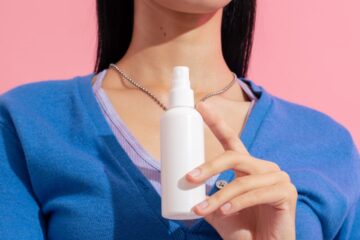For years, Vitamin C has enjoyed unwavering popularity in the world of cosmetics. Consumers value efficacy, which is why they eagerly reach for products containing this well-known and proven substance. According to the Spate x Grant Industries report, “vitamin c” generates 736.3 thousand online searches per month in the United States alone.
🔹Trust in Proven Effects🔹
Trust in Vitamin C is built on years of scientific research and positive user experiences. Regular use of cosmetics with Vitamin C contributes to improved firmness, reduction of discoloration, and stimulation of collagen production.
🔹What is Vitamin C?🔹
Vitamin C, also known as ascorbic acid, is an essential nutrient that plays a crucial role in many biological processes. It is a powerful antioxidant that helps neutralize free radicals in the body, which is important for both internal health and skin appearance.
🔹Vitamin C as a Key Ingredient in Cosmetics🔹
For cosmetics manufacturers and beauty industry professionals, Vitamin C is a key ingredient that can be used to create effective products and communicate with customers.
🔹Properties of Vitamin C🔹
Vitamin C has many benefits for the skin, making it a valuable ingredient in cosmetic products:
Antioxidant Action: Vitamin C neutralizes free radicals, protecting the skin from oxidative stress caused by UV radiation and environmental pollution.
Collagen Production Stimulation: Vitamin C is a key factor in collagen synthesis, a protein responsible for skin elasticity and firmness. Regular use of cosmetics with Vitamin C can help reduce wrinkles and improve skin structure.
Skin Brightening: Vitamin C helps reduce discoloration and pigmentation spots, evening out skin tone and giving it a healthy glow.
Skin Regeneration Support: Due to its anti-inflammatory properties, Vitamin C can accelerate the healing of minor skin damage and reduce redness.
🔹Commonly Used Forms of Vitamin C in Cosmetics🔹
Various forms of Vitamin C are used in cosmetics to ensure its stability and effectiveness:
Ascorbic Acid: The purest form of Vitamin C, but unfortunately, it is unstable and can quickly oxidize, reducing its effectiveness.
Tetrahexyldecyl Ascorbate: A stable, fat-soluble form of Vitamin C that easily penetrates the lipid layer of the skin and is gentle on sensitive skin.
Magnesium Ascorbyl Phosphate: A water-soluble and stable form of Vitamin C, often used in moisturizing and anti-aging cosmetics.
Sodium Ascorbyl Phosphate: A stable form of Vitamin C, often used in anti-acne products due to its anti-inflammatory and antibacterial properties.
The introduction of these advanced forms of Vitamin C into cosmetics allows product creators to not only improve their effectiveness but also increase customer satisfaction by offering effective and safe skincare solutions.
🔹The Future of Vitamin C in the Cosmetic Industry🔹
Vitamin C not only maintains its leading position in the cosmetic industry but also continuously evolves thanks to innovations and the growing understanding of its potential by consumers. For cosmetics creators, it is not just a trend but also an opportunity to develop products that not only meet market expectations but also set new standards in skincare.




